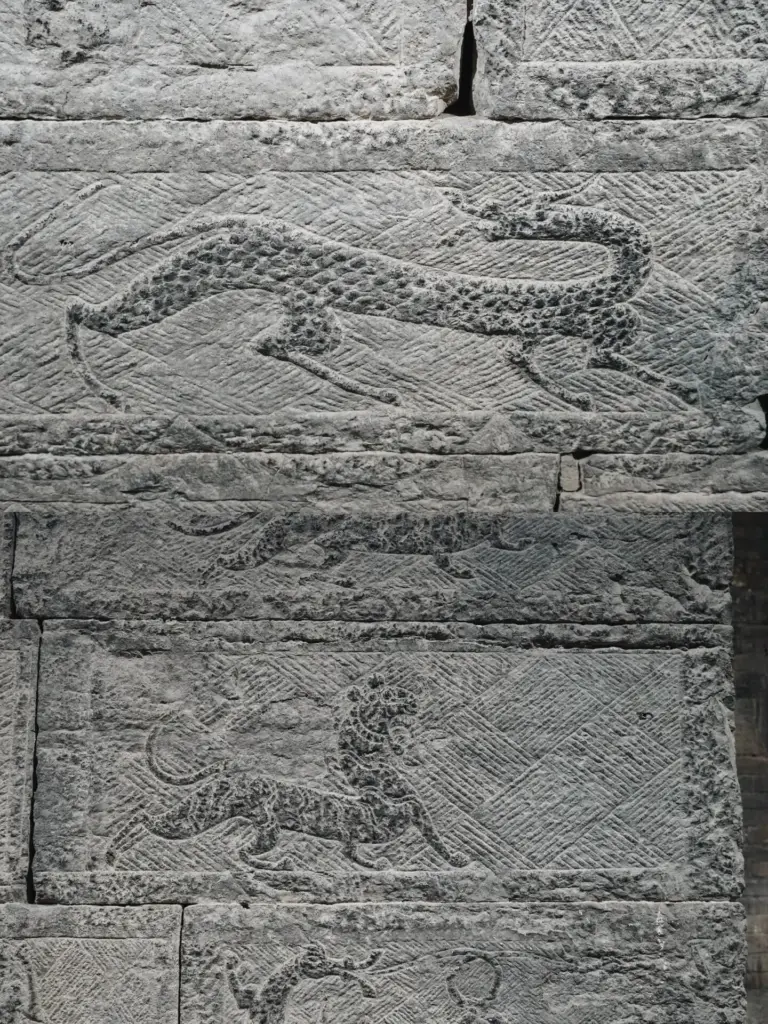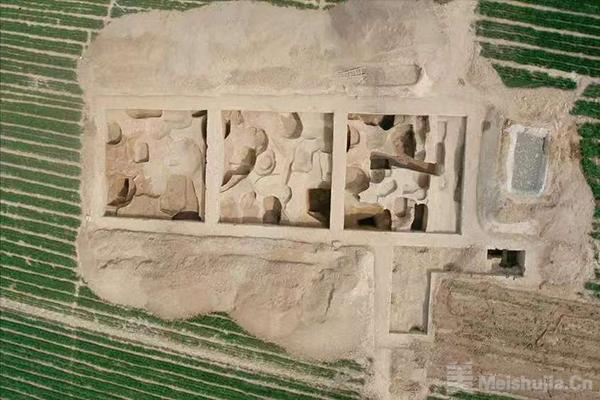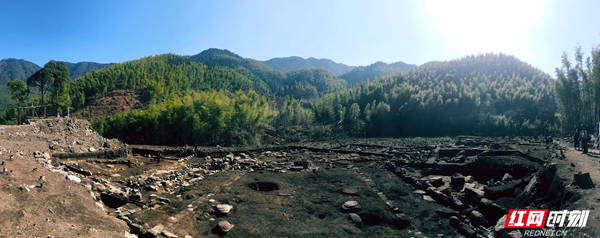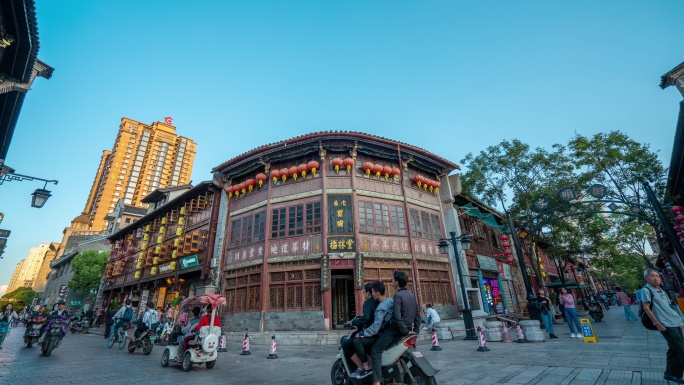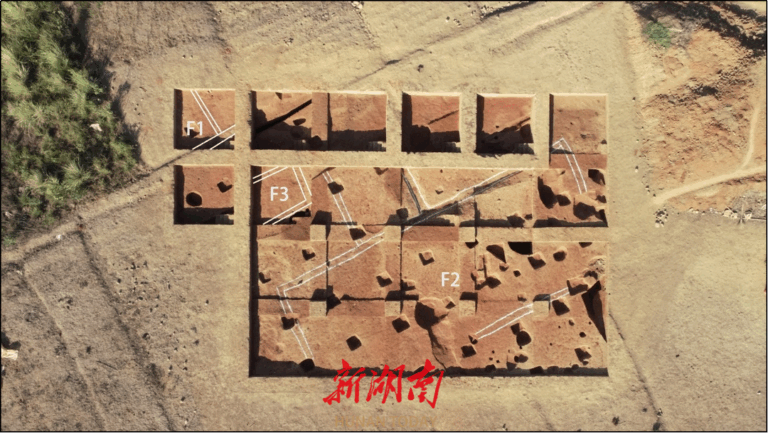Discovering Yantai’s Heritage: A Journey to Qijiguang Citang and the Legacy of Ji Qijiguang
An Essential Guide to Visiting Yantai Qijiguang Citang Ji Qijiguang Mu
In This Guide
- An Essential Guide to Visiting Yantai Qijiguang Citang Ji Qijiguang Mu
- The Rich History of Yantai Qijiguang Citang Ji Qijiguang Mu
- Main Highlights: What to See at Yantai Qijiguang Citang Ji Qijiguang Mu
- Planning Your Visit: A Practical Guide
- Tickets, Hours, and Booking
- How to Get There
- Local Cuisine and Accommodation
- Frequently Asked Questions
- Final Thoughts on Your Trip
Nestled in the historic and picturesque city of Yantai, Shandong Province, lies the revered Qijiguang Citang and the accompanying Qijiguang Tomb. These significant sites honor the legacy of General Qi Jiguang, a celebrated hero of the Ming Dynasty renowned for his valor and strategic brilliance in defending the coastal regions against Japanese pirates. Built in the late 17th century, the Qijiguang Citang, also known as the “Hall of Merit,” serves as a testament to his enduring influence and is a prime example of traditional Chinese architectural style.
Visitors to the citang will find themselves stepping back in time, surrounded by meticulously preserved structures adorned with intricate carvings and inscriptions that reflect Qi’s dedication and accomplishments. The site not only houses a magnificent statue of the general but also showcases an impressive collection of ancient weaponry, providing a glimpse into the military history of the era. The adjacent Qijiguang Tomb, with its solemn brick and stone design, further commemorates his life and sacrifices, surrounded by a serene landscape that invites contemplation and respect.
As one explores these historic grounds, they will not only gain insight into the life of a national hero but also experience the rich cultural tapestry of China’s past. The Qijiguang Citang and Tomb stand as powerful symbols of patriotism and resilience, drawing visitors from all walks of life who seek to understand the heroic narratives that have shaped Chinese history. Whether you’re a history buff, architecture enthusiast, or simply looking for a serene spot to reflect, this site promises an enriching experience steeped in heritage and tradition.
The Rich History of Yantai Qijiguang Citang Ji Qijiguang Mu
The Yantai Qijiguang Citang and Qijiguang Tomb are significant historical sites located in the city of Yantai, Shandong Province, celebrated for their association with the revered Ming Dynasty general, Qijiguang (1528-1588). Renowned for his military prowess in defending China against Japanese pirates, Qijiguang’s legacy is enshrined in these important monuments that reflect both his life and the cultural heritage of the region.
The Qijiguang Citang, or Qijiguang Shrine, was constructed in 1635 during the Chongzhen era of the Ming Dynasty, specifically to honor Qijiguang for his contributions to the nation. Originally named the “Biao Gong Ci” (Meritorious Shrine), the structure exemplifies traditional Chinese architectural style and consists of a three-courtyard layout, showcasing intricate brick and wood craftsmanship. The shrine underwent significant renovations during the 46th year of the Kangxi Emperor’s reign in the Qing Dynasty (1707) and was nationalized in 1985, leading to extensive restoration efforts to preserve its historical integrity.
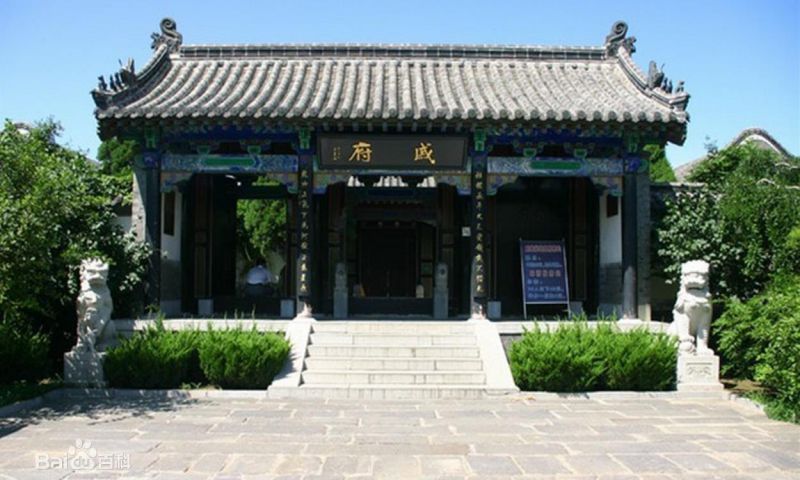
Yantai Qijiguang Citang Ji Qijiguang Mu.
Within the shrine, visitors can find a range of artifacts, including ancient weaponry that reflects Qijiguang’s military legacy. Notably, there is a statue of Qijiguang himself, surrounded by inscriptions that detail his life and achievements. The shrine also features beautifully crafted stone lions and inscriptions that commemorate his valor and leadership.
Adjacent to the shrine lies the Qijiguang Tomb, situated in the Qijiguang family cemetery at the foot of Zhishan Mountain. This burial site is a testament to the enduring respect for Qijiguang in Chinese culture. The tomb, built in a traditional brick and stone structure, has been renovated multiple times, with significant restoration completed in 1987. The tomb complex includes stone figures of horses and warriors, which enhance its historical atmosphere.
The significance of Qijiguang extends beyond military achievements; he is celebrated as a symbol of patriotism and resilience in Chinese history. Over the centuries, these sites have transformed into educational resources, serving as a base for patriotic education and cultural heritage preservation, attracting scholars, students, and tourists alike.
Today, the Yantai Qijiguang Citang and Tomb not only honor a heroic figure of the Ming Dynasty but also serve as an important cultural landmark that reflects the values and history of the region. They stand as a reminder of the enduring legacy of Qijiguang and the rich historical tapestry of China.
Main Highlights: What to See at Yantai Qijiguang Citang Ji Qijiguang Mu
Nestled in the picturesque city of Penglai, the Yantai Qijiguang Citang and Qijiguang Mu (戚继光祠堂及戚继光墓) offer a compelling glimpse into the life and legacy of one of China’s most revered national heroes, General Qi Jiguang. This site is not only a tribute to his military prowess but also a testament to the rich cultural heritage of the Ming Dynasty.
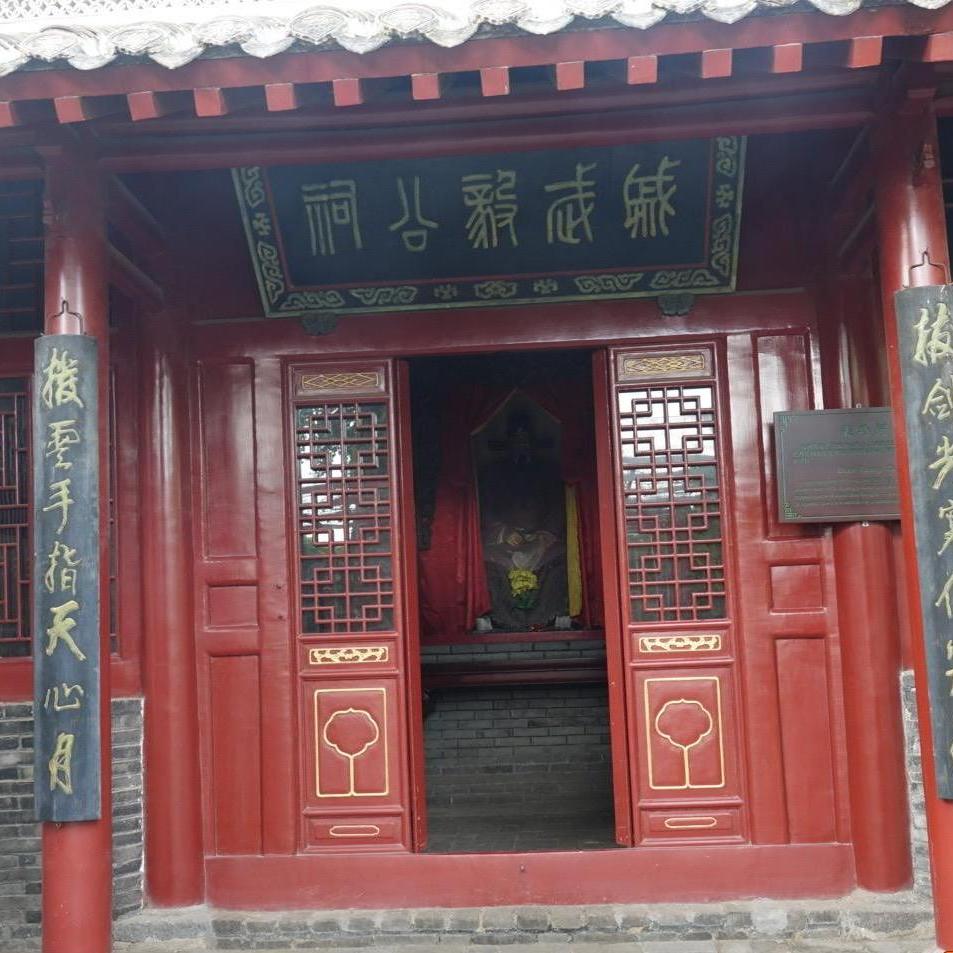
Yantai Qijiguang Citang Ji Qijiguang Mu.
Architectural Marvels
The Qijiguang Citang, built during the Ming Dynasty in 1635, stands as a classic example of traditional Chinese architecture. This ancestral hall features a three-courtyard layout typical of family temples, showcasing intricate craftsmanship in its brick and wooden structures. Upon entering, visitors are greeted by stone lions guarding the entrance and a series of exhibitions detailing Qi Jiguang’s remarkable life. Notably, the hall displays a statue of the general, surrounded by murals that narrate his military campaigns against Japanese pirates, highlighting his strategic brilliance.
Historical Significance
Qi Jiguang is celebrated for his significant contributions to China’s defense during the Ming Dynasty. His efforts in fortifying the coastal regions against invaders earned him a place in the hearts of the Chinese people. The site not only honors his military achievements but also serves as a center for patriotic education, making it a popular destination for school trips and cultural education programs.
Scenic Surroundings
The tranquility of the garden surrounding the hall enhances the experience, featuring ancient ginkgo trees and stone monuments that further reflect Qi’s legacy. Visitors can stroll through lush greenery, pausing to appreciate the harmonious blend of nature and history. The adjacent Qijiguang Mu, or tomb, adds another layer of significance, marked by a distinctive brick structure and stone carvings that tell the story of his life and the reverence with which he is regarded.
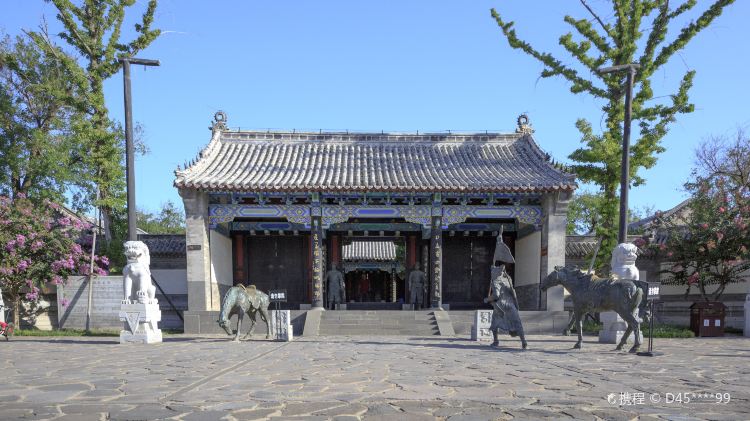
Yantai Qijiguang Citang Ji Qijiguang Mu.
Cultural Experience
As a national key cultural relic protection unit, the site regularly hosts cultural events, including traditional performances and educational workshops, enriching the visitor experience. The Qijiguang Citang and Mu not only serve as historical landmarks but also as vibrant cultural hubs where the spirit of Qi Jiguang continues to inspire future generations.
In summary, a visit to Yantai Qijiguang Citang and Mu provides an enriching experience that combines history, culture, and natural beauty, making it a must-see for anyone exploring the rich heritage of Shandong province.
Planning Your Visit: A Practical Guide
Practical Guide to Yantai Qijiguang Citang Ji Qijiguang Mu
Visiting the Yantai Qijiguang Citang and Qijiguang Mu offers a fascinating glimpse into China’s rich history and the legacy of the national hero, Qi Jiguang. This practical guide will help you navigate your visit to this significant cultural site.
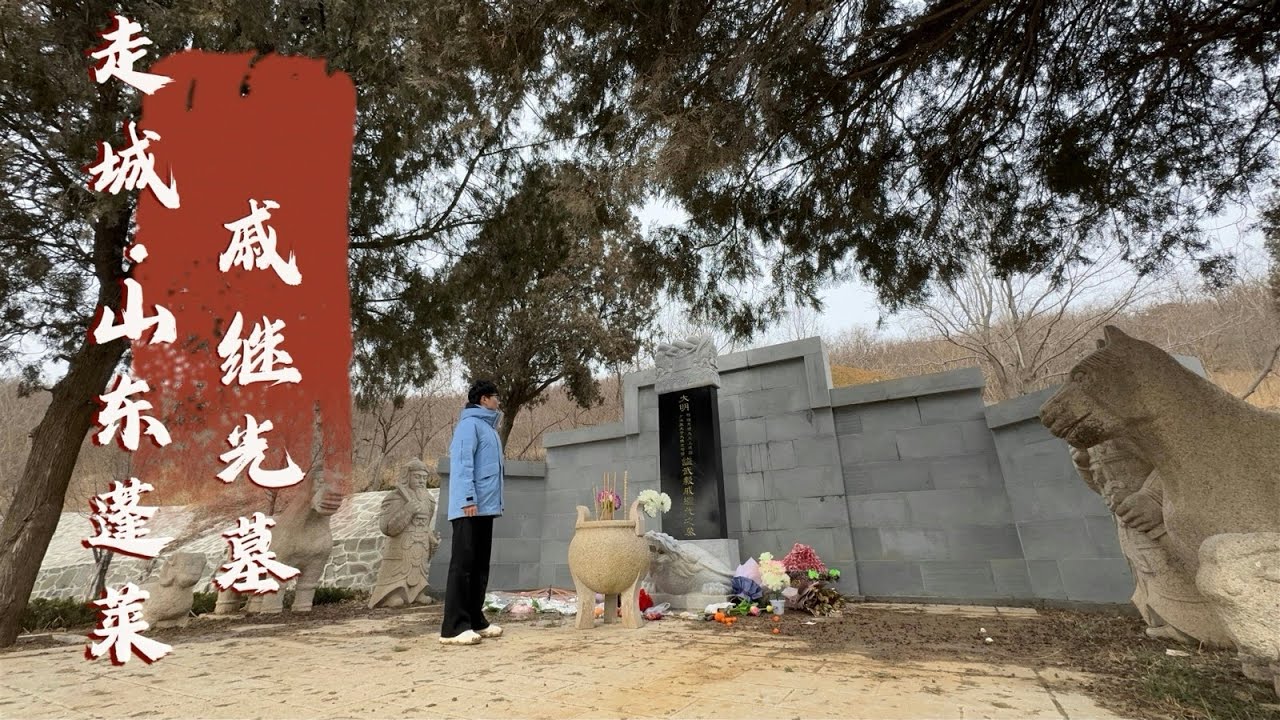
Yantai Qijiguang Citang Ji Qijiguang Mu.
Location and Accessibility
The Qijiguang Citang and Tomb are located in the Penglai District of Yantai, Shandong Province, specifically on the east side of Fenglu Pavilion Street. The site is easily accessible by public transportation, taxi, or private vehicle. If you’re traveling from Yantai city center, it’s approximately a 40-minute drive.
Opening Hours
The site is open to visitors from 8:00 AM to 5:30 PM. It is advisable to arrive early to avoid crowds, especially on weekends and public holidays.
Admission Fees
- Adults: Approximately 25 RMB.
- Students (with ID): 25 RMB.
- Children under 1.4 meters in height or under 6 years old: Free admission.
- Senior Citizens (60 years and above): Free with ID.
- Military Personnel: Free with appropriate identification.
What to Expect
-
Qijiguang Citang (Qijiguang Temple): Constructed in the 8th year of the Chongzhen era (1635) of the Ming Dynasty, this temple is dedicated to Qi Jiguang, a celebrated military commander. The temple features traditional architecture with three courtyards, adorned with ancient weaponry, statues, and informative displays about Qi’s life and achievements. Notable inscriptions and calligraphies from renowned artists add to the temple’s cultural significance.
-
Qijiguang Mu (Qijiguang Tomb): Located south of the Qijiguang Citang, the tomb is set in a serene environment. It features a brick and stone structure with a domed roof. The site includes stone figures and inscriptions detailing Qi Jiguang’s life. The tomb is a peaceful place for reflection on the contributions of this national hero.
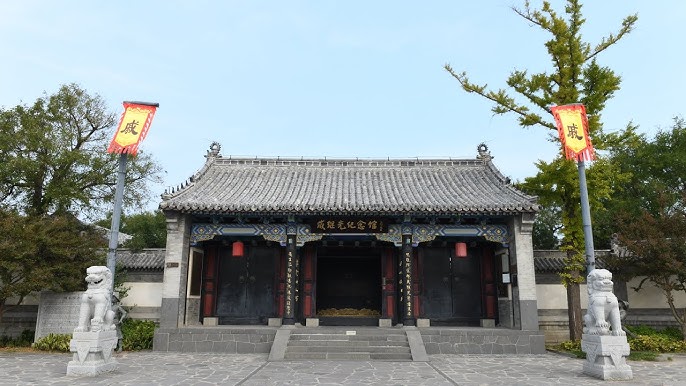
Yantai Qijiguang Citang Ji Qijiguang Mu.
Nearby Attractions
While visiting the Qijiguang Citang and Mu, consider exploring nearby sites:
– Penglai Pavilion (蓬莱阁): Famous for its stunning architecture and views, it’s just a short distance away and offers a deeper understanding of local history.
– Penglai Water City: An ancient military fortification that tells the story of maritime defense in the Ming Dynasty.
– Local Cuisine: After your visit, indulge in local delicacies at nearby restaurants. Seafood is a highlight in this coastal region.
Tips for Visitors
- Photography: Be mindful of any restrictions on photography, especially in sacred areas.
- Guided Tours: Consider joining a guided tour for deeper insights into the historical significance of the site.
- Respect Local Customs: As this is a cultural heritage site, maintain decorum and respect the traditions observed by local visitors.
- Weather Considerations: Check the weather before your visit. The best time to visit is during spring and autumn when the weather is mild.
Getting There
For those relying on public transport, buses frequently run from Yantai city center to Penglai. Alternatively, taxis are readily available and can provide direct transport to the site.
By following this guide, your visit to the Yantai Qijiguang Citang and Qijiguang Mu will be both educational and enjoyable, allowing you to appreciate the legacy of one of China’s great historical figures.
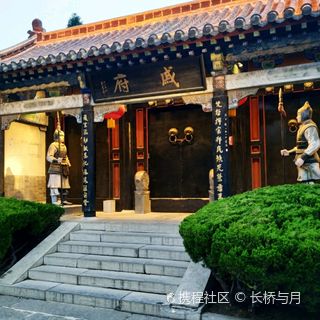
Yantai Qijiguang Citang Ji Qijiguang Mu.
Tickets, Hours, and Booking
When visiting the Yantai Qijiguang Citang and Qijiguang Mu, it’s essential to plan your trip in advance, especially regarding ticketing and entry details.
Opening Hours
The site is open daily from 8:00 AM to 5:30 PM. This gives visitors ample time to explore both the memorial hall dedicated to the renowned Ming dynasty general Qijiguang and the adjacent burial site.
Ticket Prices
– Adults: The general admission fee is approximately 25 RMB.
– Discounted Tickets:
– Students (with valid ID): 25 RMB.
– Seniors (aged 60 and above): Free admission with ID.
– Children under 1.4 meters in height or under 6 years old: Free admission.
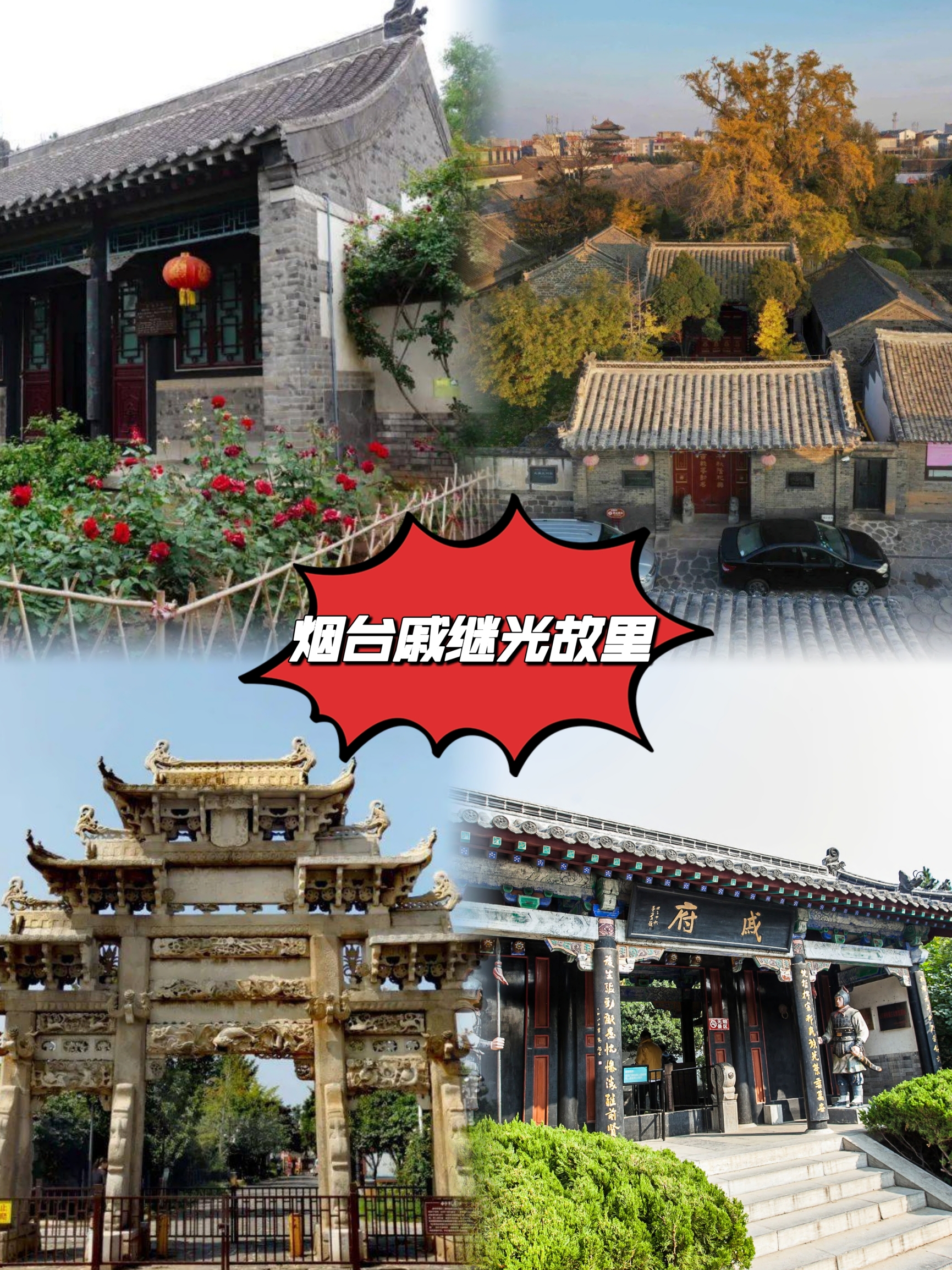
Yantai Qijiguang Citang Ji Qijiguang Mu.
Special Notes
Free admission is also granted to military personnel and individuals with disabilities, provided they present the necessary identification.
Booking Information
Tickets can often be purchased on-site, but it is advisable to check for any group discounts or special promotions that may be available through local travel agencies or online platforms. It’s recommended to arrive early to avoid long queues, especially during peak tourist seasons.
This site not only offers a glimpse into the life and legacy of Qijiguang but also serves as a vital cultural and historical landmark in Shandong province. Enjoy your visit!
How to Get There
When planning your visit to the Yantai Qijiguang Citang and Qijiguang Tomb, navigating the transportation options will enhance your journey to this historical site. Located in the scenic city of Penglai, Shandong Province, these landmarks are easily accessible through various modes of transport.
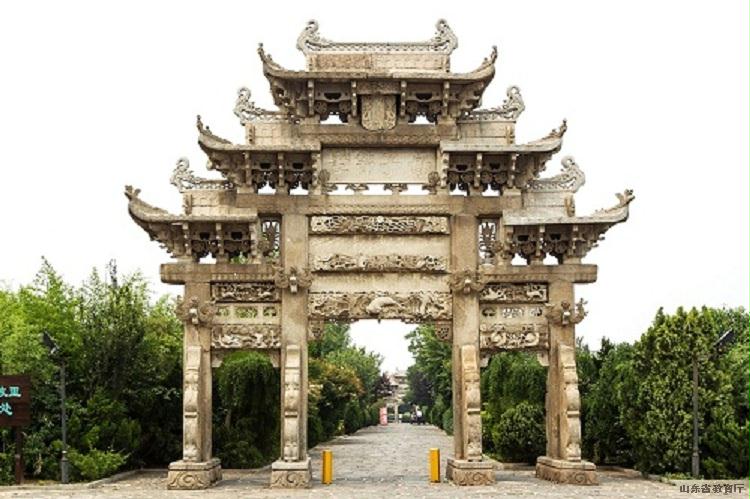
Yantai Qijiguang Citang Ji Qijiguang Mu.
Getting There
By Air:
The nearest airport is Yantai Penglai International Airport (YNT), which is approximately 30 kilometers from the Qijiguang Citang. From the airport, you can take a taxi or arrange for a ride-sharing service to reach the site. Travel time from the airport to the citang is around 40 minutes, depending on traffic conditions.
By Train:
For those traveling by train, the closest railway station is Penglai Railway Station. Regular trains connect Penglai with major cities such as Beijing and Shanghai. Once you arrive at the station, you can take a local taxi or a bus to the Qijiguang Citang, which is about 10 kilometers away (approximately a 15 to 20-minute drive).
By Bus:
Penglai is well-connected by long-distance buses from various cities in Shandong Province. Buses frequently run from Yantai, Qingdao, and Jinan. Upon arriving at the Penglai Bus Station, you can either walk (about 1 km) or take a short taxi ride to the Qijiguang Citang, located in the city center.
Local Transportation:
Once in Penglai, you have several options for local transportation:
- Taxis: Taxis are readily available throughout the city. They are an efficient way to navigate from your accommodation to the Qijiguang Citang and other nearby attractions.
- Bicycles and E-scooters: For a more eco-friendly way to explore the area, consider renting a bicycle or an e-scooter. Several rental services are available, allowing you to enjoy the scenic routes around Penglai.
- Public Buses: The local bus system provides an affordable means of transportation. Check local routes for buses that stop near the Qijiguang Citang.
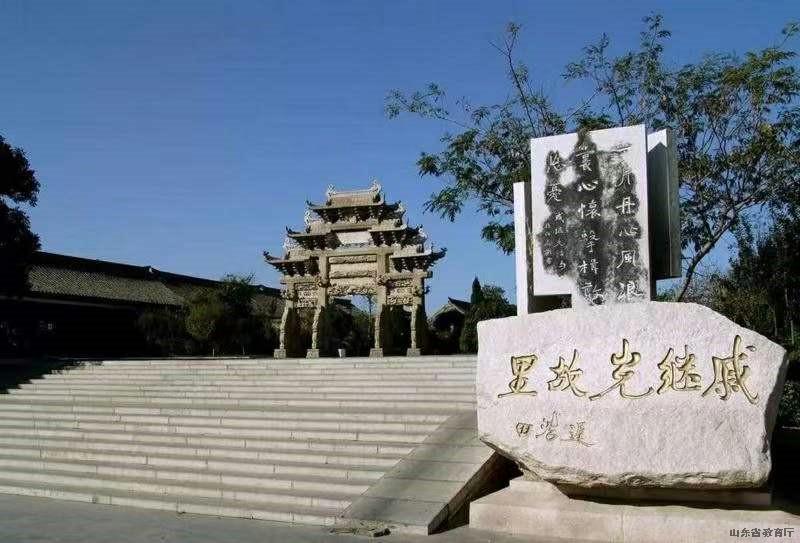
Yantai Qijiguang Citang Ji Qijiguang Mu.
Tips for Visitors
- Language: While many signs are in both Chinese and English, it’s helpful to have a translation app handy or a list of key phrases to communicate with local drivers.
- Plan Ahead: Check the schedules for trains and buses ahead of time, as service frequency may vary, especially during holidays and weekends.
- Payment Methods: Taxis and local buses usually accept cash, but many also use mobile payment systems. It’s advisable to have a local payment app downloaded or some cash on hand.
By understanding your transportation options, you can easily and efficiently make your way to the Yantai Qijiguang Citang and Tomb, ensuring a smooth and enjoyable visit to this significant historical site.
Local Cuisine and Accommodation
When visiting the Yantai Qijiguang Citang Ji Qijiguang Mu, you’ll find a range of delightful dining options and comfortable accommodations nearby, perfect for complementing your exploration of this historic site dedicated to the celebrated Ming dynasty general, Qijiguang.
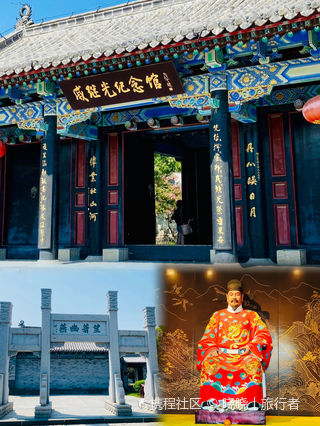
Yantai Qijiguang Citang Ji Qijiguang Mu.
Dining Options
- Jianxing Noodle House (建兴面馆)
-
Located just under a kilometer from the Qijiguang Memorial Hall, Jianxing Noodle House is a local favorite known for its rich flavors and variety of noodle dishes. The menu offers a delightful selection of soup noodles that are both hearty and affordable, making it a great stop for a quick yet satisfying meal.
-
Mojizhi Seafood Restaurant (抹直口特色菜馆)
-
This restaurant, about 1.1 kilometers away, specializes in local seafood delicacies. The ambiance is simple and welcoming, with a focus on fresh ingredients and traditional cooking methods. Diners rave about the authenticity of the dishes, which reflect the coastal heritage of the region.
-
Hilton Yantai Golden Coast (烟台金海岸希尔顿酒店·御玺中餐厅)
- For those looking for a more upscale dining experience, the Chinese restaurant in the Hilton offers a refined take on Shandong cuisine. With elegant decor and a menu crafted by professional chefs, it’s an excellent choice for a special occasion or a leisurely dinner after a day of sightseeing.
Accommodation
- Yantai Sunshine Express Hotel (烟台阳光快捷酒店)
-
Situated conveniently close to the Qijiguang site, this budget-friendly hotel offers clean and comfortable rooms for travelers. The staff is friendly, and the hotel provides essential amenities, making it a great base for your explorations.
-
Yantai Longhu Puti Resort Hotel (烟台龙湖葡醍海湾家庭度假别墅)
-
For a more unique experience, consider staying at this family resort. Set against beautiful coastal views, the hotel features spacious villas ideal for families or groups. Enjoy the serene environment while being just a short drive away from the historical attractions.
-
Yantai Chenbo Inn (烟台陈波旅馆)
- A charming inn that offers a more personalized touch, Chenbo Inn is known for its warm hospitality and homely atmosphere. Guests can enjoy cozy rooms and home-cooked meals, providing a relaxing retreat after a day of exploring.
These dining and accommodation options will enhance your visit to Yantai Qijiguang Citang Ji Qijiguang Mu, allowing you to savor the local flavors while enjoying a comfortable stay. Whether you’re in the mood for casual dining or a luxurious meal, you’re sure to find something that suits your taste and budget.
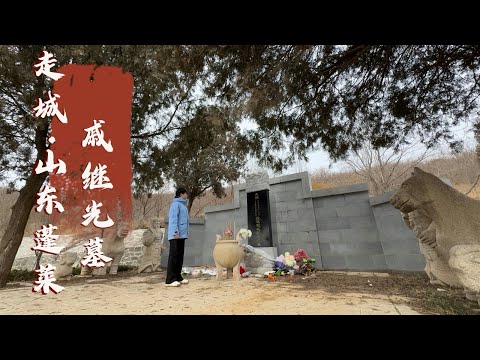
Yantai Qijiguang Citang Ji Qijiguang Mu.
Frequently Asked Questions
FAQs about Yantai Qijiguang Citang Ji Qijiguang Mu
- What is the significance of Qijiguang Citang and Qijiguang Mu?
-
Qijiguang Citang, or Qijiguang Temple, is dedicated to the celebrated Ming dynasty general Qi Jiguang, known for his efforts in defending against Japanese pirates. The accompanying Qijiguang Mu, or his tomb, serves as a memorial to his contributions and legacy in Chinese history, particularly in military defense.
-
Where are the Qijiguang Temple and Tomb located?
-
Both sites are situated in the city of Penglai, within Yantai, Shandong Province, China. The temple is located on the eastern side of the street in front of Penglai Pavilion.
-
What are the visiting hours for Qijiguang Citang and Qijiguang Mu?
-
The site is open to visitors from 8:00 AM to 5:30 PM. Please check for any seasonal changes in hours before your visit.
-
Is there an entrance fee to visit the temple and tomb?
-
Yes, there is an entrance fee. For specific pricing, especially for students, seniors, or special groups, it is advisable to check with local tourism offices or the official website prior to your visit.
-
What can I see inside Qijiguang Citang?
-
Inside the temple, visitors can explore the main hall where a statue of Qi Jiguang is displayed, along with various historical artifacts and inscriptions that narrate his life and achievements. The temple also features ancient weaponry on display and beautiful gardens.
-
Are there any facilities available for tourists?
-
Yes, the site offers basic facilities, including restrooms and areas for resting. There are also information boards throughout the area to enhance visitor understanding of the historical significance of the sites.
-
How can I get to Qijiguang Citang and Qijiguang Mu?
-
The site is accessible by public transport or taxi within Penglai. If you are traveling from Yantai city center, there are buses that connect to Penglai, making the journey convenient.
-
Are guided tours available?
- Yes, guided tours are available for those who wish to have a more in-depth understanding of the history and significance of Qijiguang Citang and Qijiguang Mu. It is recommended to book in advance, especially during peak tourist seasons.
Final Thoughts on Your Trip
Visiting the Qijiguang Citang and Qijiguang Mu in Yantai offers a profound glimpse into China’s rich historical tapestry. As you explore the beautifully preserved architecture of the ancestral hall and the solemnity of the tomb, you are not just witnessing relics of the past; you are stepping into the legacy of a national hero whose valor and leadership shaped the course of Chinese history.
These sites are more than just tourist attractions; they serve as a poignant reminder of the sacrifices made for the country’s sovereignty and integrity. The intricate details of the architecture, the serene gardens, and the artifacts on display create an atmosphere of reverence and reflection.
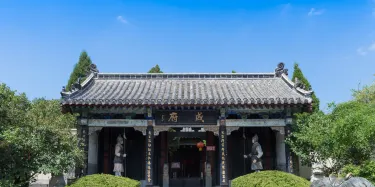
Yantai Qijiguang Citang Ji Qijiguang Mu.
As you leave the Qijiguang Citang and Mu, carry with you the spirit of Qijiguang—an emblem of courage, dedication, and patriotism. Embrace the stories of the past, and let them inspire you as you navigate your own journey through life, reminding you of the enduring power of heritage and the importance of remembering those who came before us.
